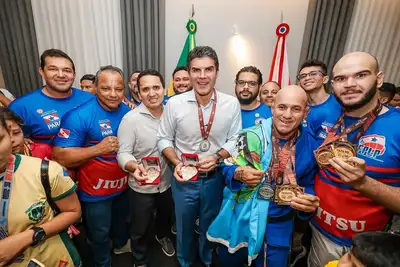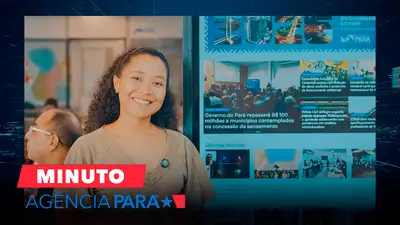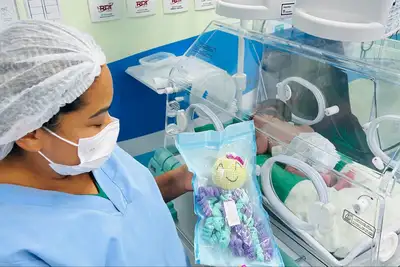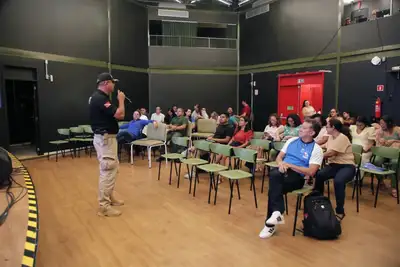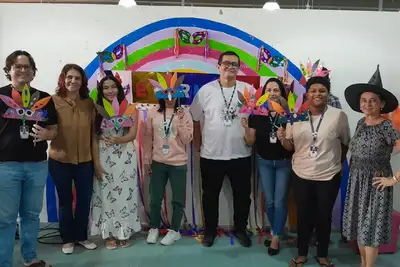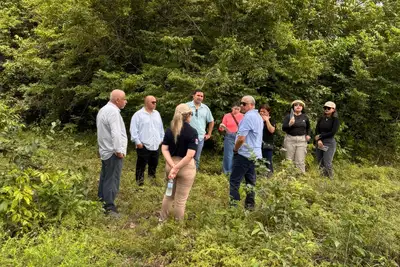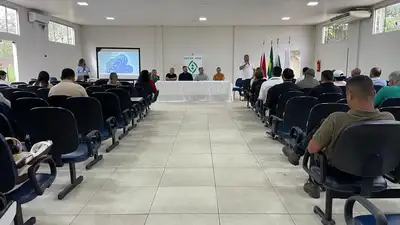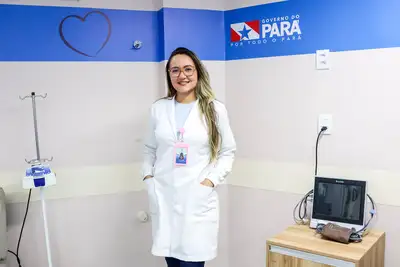Community Territories of Pará Stand Out at the World Climate Conference
Panel at COP 30 in Belém discusses the importance of community involvement in the Marajó archipelago for forest conservation and management
The Institute for Forest Development and Biodiversity of Pará (Ideflor-Bio) presented, on Thursday (20), at the Pará Pavilion in the Green Zone of COP30 in Belém, a panel showcasing the work carried out by the team from the Forest Chain Development Directorate (DDF) and partners in community territories of Pará.
Entitled "Territorial Planning, Forest Governance, and Community Forest Management: The Experience of Community Territories in Marajó," the panel highlighted the importance of community involvement in the Marajó Archipelago region for maintaining forest conservation and management in protected areas of Pará.
The panel aimed to discuss the themes of forest governance and community forest management in the State of Pará, analyzing its main challenges and advancements. The discussion addressed land, economic, environmental, and legal aspects related to the topic, with emphasis on the State Policy for Community and Family Forest Management to be established, in addition to Federal Law No. 11.284/2006, which provides for the management of public forests, and the agenda of Pará's Bioeconomy, established by State Decree No. 2.746/2022 (PlanBio).
Experiences of governance and community forest management in community territories of the Marajó Integration Region were also presented. To compose the panel, invited were forest engineer and environmental analyst from Ideflor-Bio, Daniel Francez; the technician in Management and Agrarian and Land Development from the Land Institute of Pará (Iterpa), Rosi Pantoja; from the young community leadership, president of the Rural Workers Union (STTR) of Portel, Robson Gonçalves Machado; from the extractor and president of the Mixed Agro-extractive Cooperative of Resex Arioca-Pruanã (Coomap) in Oeiras do Pará, Samuel Oliveira; from the agronomist and Master in Family Agriculture and Sustainable Rural Development, Manuel Amaral; and from the forest engineer, writer, and doctoral student, Carlos Ramos.
Territorial Management and Citizenship - For Daniel Francez, forest management allows communities to generate income while keeping the forest standing. "This lecture came to reinforce the importance of these community territories, along with the presentation of examples in the region of the municipality of Portel, as well as to present state policies applied in these projects," he emphasized.
The forest engineer, Carlos Augusto, highlighted the activities developed in the Extractive Reserve (Resex) Arióca Pruanã, located in the municipality of Oeiras do Pará, noting that in addition to community forest management activities, territorial management actions for these communities are also developed through state public policies.
"In our lecture, we also talked about this territorial management, which not only encompasses timber and non-timber management by these communities but also assigns public policies for these communities to develop new activities and generate income, strengthening this work," he emphasized.
It is worth noting that Pará has 671 thousand hectares of areas designated for forest concessions, with 87% of these areas being for timber and non-timber forest management.
Text by Sinval Farias, supervised by Vinícius Leal / Ascom Ideflor-Bio



